Why is it dangerous to salt cabbage, lard, fish in aluminum dishes?
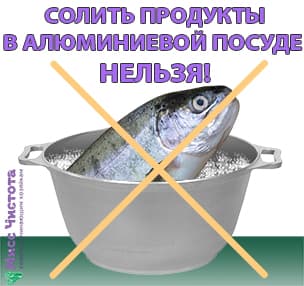
Several decades after this aluminum cookware appeared in the household, a strange, at first glance, question arises: is it possible to salt food in aluminum cookware? Well, let's find out.
A little about aluminum cookware
Unpretentious and durable utensils made of aluminum have earned well-deserved respect from several generations. Relatively inexpensive pots, ladles, and jugs were bought with pleasure by our grandmothers and to this day faithfully serve their owners.
The main property of aluminum is very rapid oxidation. Any piece of aluminum, as a result of interaction with the oxygen around us, is immediately covered with a thin film invisible to the eye. This film protects the metal from corrosion - that is, it does not rust. Moreover, in production, aluminum products are subjected to additional anodic oxidation. Simply put, using a special technological process, the protective film is thickened and secured. This protective layer prevents food from coming into contact with the metal itself.
The main advantages of aluminum cookware:
- ease;
- corrosion resistance;
- high thermal conductivity;
- low cost.
Why can't you salt in aluminum containers?
A number of scientists believe that aluminum is toxic. Studies have shown that all patients suffering from Alzheimer's disease have increased levels of aluminum in their brain tissue.It is believed that the main route of entry into the body of this metal is the use of aluminum cookware. Moreover, the sanitary and epidemiological norms and rules (SanPiN) of 2003 do not allow the use of utensils made of this metal in preschool institutions.
However, there are also diametrically opposed views that defend aluminum products. Moreover, all arguments are based precisely on the presence of a protective oxide film.
Despite the difference in opinions, both sides agree that alkaline and acidic environments dissolve the oxide film, reacting both with the aluminum oxide itself and with the pure metal, dissolving it.
Remember the experiment from your school chemistry course - the reaction of aluminum with a mixture of sodium chloride (table salt) and copper sulfate. Copper sulfate itself does not react with aluminum, since the latter is protected by a strong oxide film. But as soon as a NaCl solution appears, this film is destroyed under the influence of chloride ions. Pure aluminum is no longer limited by anything and can react with copper and water, sacrificing its own structure - in other words, dissolving.
Outside the test tube, everything happens not so linearly, but in a similar way - a solution of table salt opens access to the aluminum hidden behind the oxide film, and it begins to react with the substances that make up the product that you decided to salt.
That is, when salting fish, lard, cabbage, an environment is formed in a container that can provoke an undesirable chemical reaction. As a result, the housewife will receive products with a higher aluminum content and a changed taste. And this is extremely undesirable.
Let's sum it up
Aluminum cookware will faithfully serve in the kitchen for a long time.Chemists are not against preparing various dishes in such containers. The main thing is that they are not sour or overly salty. And it is advisable not to store anything in these containers. Use pots and pans for cooking only! And for salting lard, fish, cabbage, it is better to use dishes made from other materials. The ideal option is glass. You can also use steel or enamel containers. And if there is absolutely nothing suitable, just cover the pan with a bag suitable for storing food.
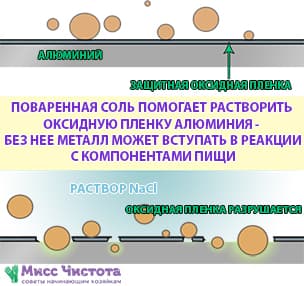
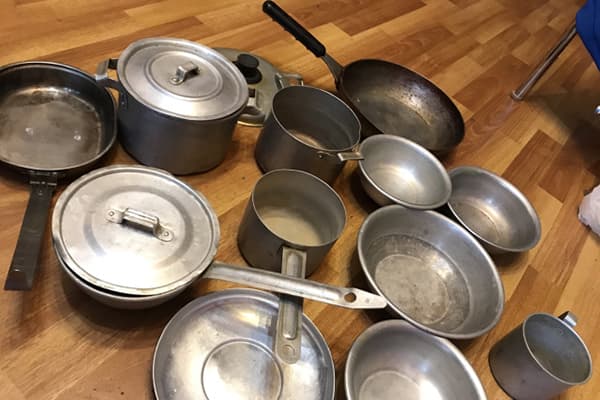
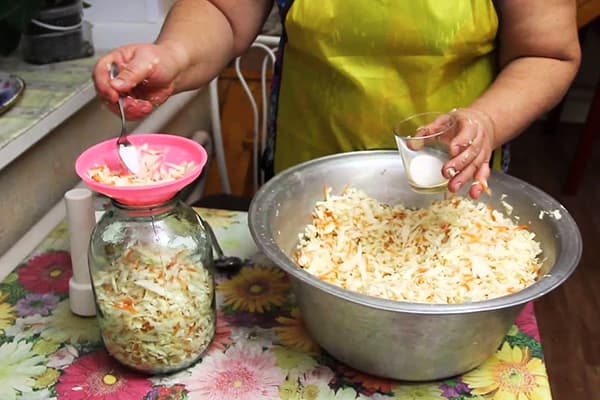
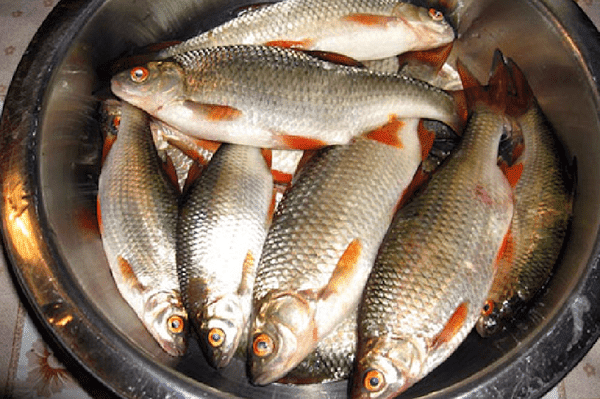
The mushrooms have been salted for three days in an aluminum pan; now throw them in?
Throw it away?
Thanks for the useful information. I once salted fish in an aluminum pan. It turned out bitter. I thought the fish was bad... But it turns out it wasn’t the problem.